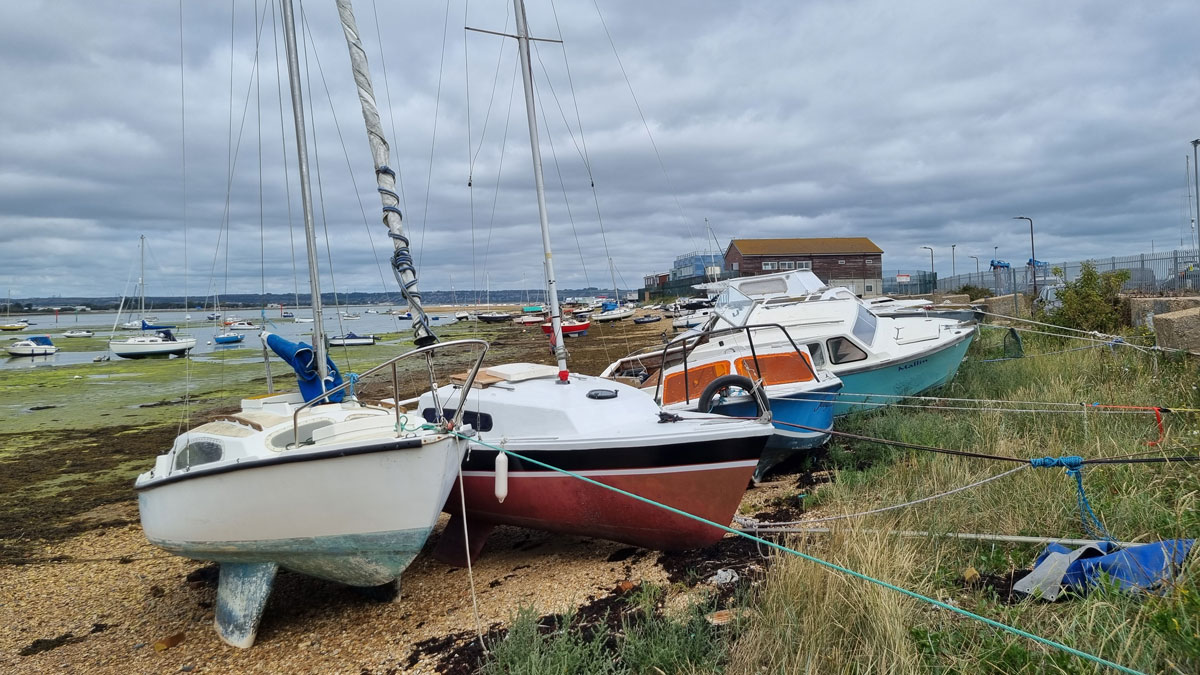Rising Concerns Over Abandoned Boats
Abandoned vessels and end-of-life boats are increasingly clogging moorings and obstructing foreshores across the coastlines, presenting significant environmental challenges. This growing concern has been echoed by harbour authorities, local sailors, and community groups alike, as the situation appears set to worsen over the next decade. Authorities warn that an influx of vessels dating back to the 1960s and ’70s is reaching the end of their usable lives, coinciding with boats from the ’80s and ’90s also falling into disrepair.
The modern trend of larger vessels presents a new set of challenges. Many contemporary yachts and fishing boats made from glass reinforced polyester (GRP) are not just left to rot onshore but may also be abandoned in boatyards, posing a risk of pollution due to the materials used in their construction.
The Scope of the Problem
Initiatives like the Wreck Free Fal and Helford forum highlight the urgency to address this issue, reinforcing that in the coming years, we may see more abandoned boats, potentially exceeding 30 feet in length. Jake Burnyeat, the founder of the forum, emphasizes the need for action, warning that without intervention, foreshores could soon be lined with larger vessels, transforming them into visual pollution.
The current cycle for disposing of a boat responsibly often proves costly, sometimes reaching £1,500 or more for a three-ton vessel. Unfortunately, for many owners, the financial burden forces them to abandon their boats in creeks, allowing harmful substances like paints and oils to leach into the ocean.
Lack of Recycling Options
Many boats that reach the end of their service life become waste products simply due to a lack of viable recycling options. Data from a 2016 study by OSPAR revealed that between 60,000 to 120,000 recreational boats in Europe face this fate each year. Most GRP vessels are sent to landfills as recycling methods remain limited, leading to environmental concerns about pollution in marine ecosystems, particularly regarding issues like microplastics seeping into sea life.
This environmental toll is further heightened by the financial implications on the boating community. Harbour authorities often bear the costs associated with abandoned vessels, which deters them from offering affordable moorings essential for local sailors.
Community Efforts
Local initiatives have been set up to address the abandoned boat problem. For instance, volunteers have been active in clearing wrecked vessels and other waste from various estuaries. Recent statistics suggest significant progress, with local authorities managing to remove dozens of problematic vessels in a year. Yet, the lack of a cohesive national framework for tackling this problem hampers these individual efforts significantly.
Abandoned vessels pose threats to the environment through:
Pollution of local water bodies.
Increased costs for harbour authorities.
Declining aesthetic and recreational value for coastal communities.
In this context, advocating for a national registration scheme for all vessels could prove beneficial. This would ensure accountability among boat owners and offer a framework for responsible boat disposal, ideally leading to less pollution and more effective tracing of abandoned boats back to their owners.
The Path Forward
The dialogue surrounding the issue is gradually evolving, with community leaders like Emma McGee, director of the Sailors Creek Community Interest Company (CIC), calling for systematic reform in handling end-of-life vessels. The introduction of mandatory registration, similar to that utilized by the French system, could assist in facilitating better management of abandoned and derelict vessels across the UK’s waterways.
Moreover, establishing recycling centers where boat owners can responsibly dispose of their vessels at no cost would encourage compliance and prevent financial burden on responsible owners. This initiative would foster a sense of community and collective responsibility among boat users.
Strategies for Successful Boat Disposal
Experts recommend several steps to tackle the abandoned vessel problem effectively:
Implement a national framework for end-of-life vessel management.
Encourage local councils to work in coordination with harbour authorities for vessel removal and recycling.
Promote community awareness programs focused on responsible boat ownership and the importance of proper disposal.
Global Comparisons and Insights
Observations from other countries demonstrate that effective boat disposal and recycling practices are achievable. For instance, France has established several scrappage yards, which allow boat owners to dispose of their vessels at no cost. These initiatives are funded through a producer levy on new boat sales, creating a sustainable model that allows for the recycling of boats effectively and responsibly.
Meanwhile, the UK continues to grapple with the challenges of dealing with its growing fleet of end-of-life vessels. It’s clear that without a harmonizing approach, the problem of abandoned boats will become increasingly severe, further compromising coastal ecosystems and local economies.
الأفكار النهائية
The issue of abandoned boats represents not just an environmental challenge but also a broader reflection on our boating culture and values. As we navigate through this pressing concern, it’s essential to recognize that responsible ownership and awareness can change the tide on this issue. For those seeking adventure and seeking to explore the sea, GetBoat provides an opportunity to embrace this while ensuring that their boating experience remains sustainable and fulfilling.
Exploring new coastal destinations is an engaging journey, where one learns about local cultures and natural beauties. Renting a boat enables that deep connection with unique locales—where every bay, inlet, and lagoon reveals tales as rich as the history that surrounds them. For your next maritime journey, consider boat rentals that underscore this connection, as they complement your adventurous spirit and respect for the ocean’s breathtaking landscapes. موقع GetBoat.com
As the boating community evolves, understanding the implications of vessel abandonment will guide responsible navigational choices for a brighter future. Proper planning and awareness are essential for anyone looking to embrace sailing, fishing, or simply enjoy time on the water. Let’s ensure that our waterways remain vibrant for generations to come.

 Addressing the Issue of Abandoned Boats">
Addressing the Issue of Abandoned Boats">
